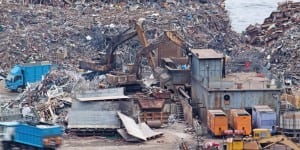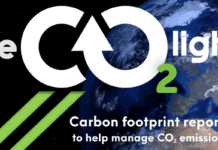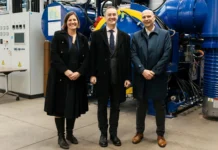The international toxic trade watchdog organisation, Basel Action Network (BAN), released a report on 9 May that followed a two-year study into placing electronic GPS tracking devices into old electronic equipment such as printers and computer monitors, then watching where it went.

THE report, the first to be released from the project, is entitled Disconnect: Goodwill and Dell Exporting the Public’s E-waste to Developing Countries, and is released in conjunction with the airing of a PBS NewHour segment entitled The Circuit, as well as an MIT interactive website which graphically shows the overall movement of the tracked devices.
BAN’s e-Trash Transparency Project so far has delivered 200 trackers across the US to places where the public is likely to take their old electronics to be recycled – such as recyclers and Goodwill stores. The results are in and we now see that instead of being recycled, 65 (32.5%) of these devices, were exported overseas on container ships. Most of them went to Asia, and most were traded in likely violation of the laws of the importing countries. Of the 149 trackers delivered just to recyclers, 39% of these were exported.
“Unfortunately, we are seeing considerable backsliding in the electronics industry today compared to just a few years ago,” said BAN Executive Director Jim Puckett. “Toxic e-waste is flowing off our shores every day to substandard operations, harming people and the environment across the globe. Meanwhile, these exports deprive our own nation of green jobs and make it difficult for responsible electronics recyclers to compete and survive.”
Dell and Goodwill exposed
As a particular focus of the study and the Disconnect report, 46 of the 200 tracker-planted electronic devices were delivered to Goodwill Industries stores across the United States. Seven of these later reported their whereabouts in the Asian countries of Thailand, Taiwan, and China (Mainland and Hong Kong). Six of these were part of Dell, Inc.’s Reconnect partnership with Goodwill.
Instead of being recycled in the United States as their customers were promised, these devices were exported in violation of Dell’s strict policies, and were likely illegal under the laws of the importing countries. The report takes issue with the fact that Goodwill does not even have a policy against export to developing countries, and Dell surprisingly refuses to tell the public whom their recyclers are.
“Goodwill and Dell have had strong reputations for social and environmental responsibility. Our findings, however, shake the foundations of that public trust, and cry out for the implementation of immediate reform when it comes to e-waste management,” said Puckett. “These must include stronger, enforced policies of greater due diligence, and transparency.”
As part of the study, BAN travelled to the locations where the Goodwill and Dell and other trackers ended up, even retrieving one of them. Most arrived in the rural mainland border area, New Territories in Hong Kong. In this area the devices arrived at many informal, outdoor junkyards. These unpermitted facilities expose illegal immigrant laborers and the environment as the workers smash equipment releasing toxic mercury from the LCD monitors or toxic toners from the printers.
BAN intends to continue the use of tracking technology, as they believe its use will play a pivotal role in holding an errant and troubled electronics recycling industry to account. They will also make this service available to other civil society organizations, governments, as well as large enterprises.







